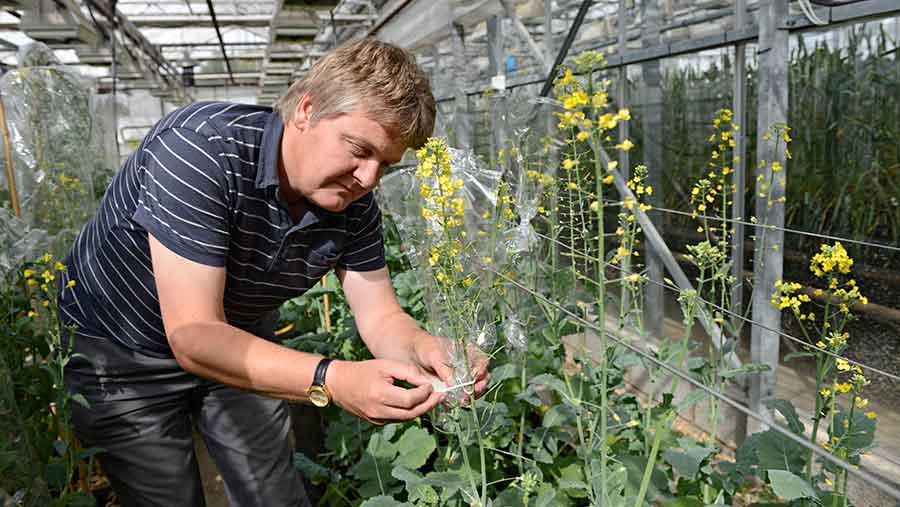Job profile: What it’s like to be a plant breeder
 Mark Nightingale
Mark Nightingale It’s not easy to become a plant breeder, but if you are passionate about crops, it can be hugely satisfying to see something you helped create growing in fields across the country.
If you are looking for a job that combines field and office work, and would enjoy doing a different job every week of the year, then plant breeding could be for you.
Farmers Weekly speaks to a specialist plant breeder from a horticultural and agricultural plant breeding company to find out what their job is like.
See also: Job profile: What’s it like to be a field trials manager?
Name Mark Nightingale
Job title Technical manager – oilseed specialist
Company Elsoms
Age 51
Sum up your job in a sentence or two
It’s very diverse – during the year my tasks range from research development and field selection of potential plant varieties to speaking to seed merchants about commercial placement of a finished product.
What sort of things does this involve day to day?
Plant breeding is a team activity. You do something different every week of the year. There are certain tasks you will only do one or two days a year, which is very nice, but also very challenging.
What do you enjoy most about your job?
The diversity. I also get a real kick out of something I have bred being widely sown. You think of hundreds of tonnes of seed being sold of something that was once just one seed. That’s very humbling and very rewarding.
What’s the downside?
Much of the potential genetic material we generate doesn’t contain sufficient beneficial traits or isn’t high yielding enough for it to be commercially viable.
Alongside that, diseases are constantly evolving and the requirements for AHDB recommendation are constantly rising. This, unfortunately, means we have to discard significant amounts of the potential new varieties we have worked hard to generate each year.
What percentage of your job is office-based?
It depends on the time of year. From early spring until after drilling I wouldn’t be in the office for more than 10% of my time. In the winter, it’s at least 80% office based.
What skills and qualifications are essential to do the job?
Historically, a basic understanding of genetics and a keen eye for detail was the key requirement for the job. Today, the role is more technical and requires far more in-depth knowledge, which results in a requirement for higher qualifications.
Many companies will require a masters degree as a minimum today. As far as skills go, a willingness to constantly learn on the job is also essential.
What experience did you have before starting?
I started as an assistant at the plant breeding institute in cytology, where I completed a degree part time.
A move into plant physiology led to a role with Elsoms Seeds. Originally I worked with winter wheat, spring and winter barley before moving into winter oilseed rape.
During my 30 years at Elsoms, I have completed my masters degree in plant breeding, specialising in doubled-haploid production.
What advice would you give to someone who wants a similar role?
Have a willingness to be flexible with your time. There are long days at some times of the year, as well as weekend work, in all weathers.
Beyond knowledge of plant breeding, it’s also vital to have a good understanding of what farmers want in the real world, the politics associated with the plant breeding sector, and how the export markets work.
Give us an idea of salaries
It’s difficult to put a figure on it – it depends on where you’re located, the size of the company you work for, and the size of the team you manage.
